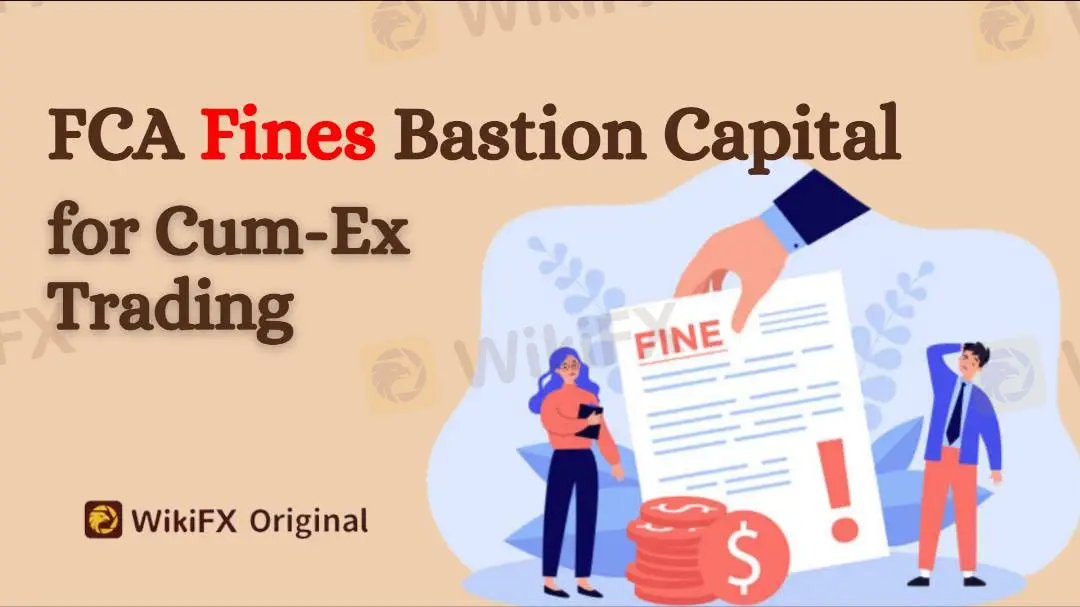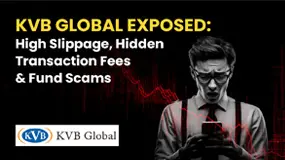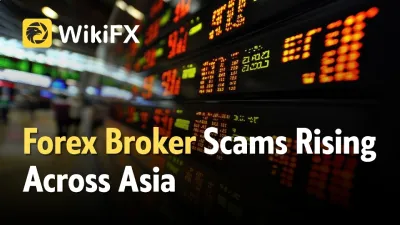简体中文
繁體中文
English
Pусский
日本語
ภาษาไทย
Tiếng Việt
Bahasa Indonesia
Español
हिन्दी
Filippiiniläinen
Français
Deutsch
Português
Türkçe
한국어
العربية
FCA Fines Bastion Capital for Cum-Ex Trading
Abstract:Bastion Capital has incurred substantial penalties due to significant deficiencies in its financial controls, marking the fifth case by the FCA related to cum-ex trading.

Bastion Capital London Limited has been levied a substantial fine of £2,452,700 by the Financial Conduct Authority (FCA) for significant lapses in financial controls linked to cum-ex trading. The FCA found that Bastion Capital inadequately managed the risk of being exploited for fraudulent trading and money laundering purposes.

During the period spanning January 2014 to September 2015, Bastion Capital carried out trades totaling around £49 billion in Danish equities and £22.5 billion in Belgian equities on behalf of clients from Solo Group. The manner in which these transactions were conducted raised significant suspicions of involvement in financial wrongdoing.
It appears that these trades were orchestrated with the intention of facilitating withholding tax reclaims in Denmark and Belgium. As a result, Bastion Capital received a commission amounting to £1.55 million, which constituted a substantial portion of the company's revenue during that specific timeframe.
Furthermore, Bastion Capital was involved in a sequence of trades executed on behalf of 11 Solo Clients within a span of four days. Remarkably, these clients took opposite positions within hours at significantly disparate prices. As a consequence, Ganymede Cayman Ltd, one of the Solo Clients, incurred a substantial loss of €22.7 million, while the remaining ten Solo Clients gained a corresponding advantage.
Bastion Capital exhibited a failure to recognize or intentionally disregarded numerous warning signs associated with these trades. These transactions lacked any legitimate economic purpose and were solely intended to transfer funds from the controller of the Solo Group to their business associates.
Steve Smart, the Joint Executive Director of Enforcement and Market Oversight at the FCA, remarked, “Bastion generated substantial fees by executing trades on behalf of Solo Group, which ultimately aimed to make unlawful tax reclaims from the Danish and Belgian authorities.”
“They failed to recognize evident warning signs that should have alerted them to the potential involvement in financial crimes. It is crucial for firms to effectively manage and mitigate these risks.”
Bastion did not contest the FCA's conclusions and opted for a settlement, which made them eligible for a 30% reduction under the FCA's Settlement Discount Scheme. As Bastion is currently in liquidation, the FCA will become a creditor of the company. However, existing creditors will be given priority over the FCA's financial penalty.
FCA Fights Cum-Ex Trading
This represents the FCA's fifth case involving cum-ex trading, which is part of a broader series of actions taken by the FCA in relation to cum-ex dividend arbitrage cases. To date, the FCA has levied fines exceeding £20 million on firms that have generated fees totaling more than £7 million from such trading activities. Recently, the FCA imposed a significant fine on ED&F Man, and last year, it imposed fines on TJM Partnership Limited.
Cum-ex trading, a contentious form of stock trading, was predominantly practiced in Germany and other parts of Europe before being declared illegal due to its exploitative nature. The term “cum-ex” originates from the Latin words “cum” (with) and “ex” (without), signifying the presence or absence of dividend rights associated with shares.
In this type of trading, both the initial bank and the stock borrower would simultaneously claim tax refunds for capital gains tax on the same stock, effectively enabling them to obtain twice the amount of taxes originally paid. This exploitation of a loophole in the system allowed for the diversion of funds from the state treasury.

Disclaimer:
The views in this article only represent the author's personal views, and do not constitute investment advice on this platform. This platform does not guarantee the accuracy, completeness and timeliness of the information in the article, and will not be liable for any loss caused by the use of or reliance on the information in the article.
Read more

Voices of the Golden Insight Award Jury | David Bily, Founder and CEO of Moneta Markets
WikiFX Golden Insight Award uniting industry forces to build a safe and healthy forex ecosystem, driving industry innovation and sustainable development, launches a new feature series — “Voices of the Golden Insight Awards Jury.” Through in-depth conversations with distinguished judges, this series explores the evolving landscape of the forex industry and the shared mission to promote innovation, ethics, and sustainability.

KVB Global Exposed: High Slippage, Hidden Transaction Fees & Fund Scams
Does the MT4 platform provided by KVB Global minimize your actual profit? Does the broker deny your withdrawal request and instead tell you to deposit more? Have you faced hidden charges on blockchain transactions by the KVB Group? Have you witnessed massive fund scams while trading with the KVB broker? You need to act fast and even take legal assistance to recover your stuck funds. Several traders have alleged that KVB Global is involved in illegitimate trading activities. Check out their complaints in this KVB Global review.

Pocket Broker Review: Traders Furious Over Withdrawal Denials, Account Blocks & Price Manipulation
Does Pocket Broker ask you to verify the payment method repeatedly as you request fund withdrawals? Does the South Africa-based forex broker disallow you the same despite multiple verifications? Does your Pocket Broker forex trading account get blocked without any reason? Do the prices shown on the Pocket Broker login vary from real market prices? These are forex investment scams that Pocket Broker has been allegedly involved in. Read on to find more details.

Forex Broker Scams Surge Across Asia’s Trading Markets
Investment scams tied to fake forex brokers and crypto exchanges are rising in Asia, exploiting weak KYC rules and targeting cross-border investors.
WikiFX Broker
Latest News
INTERPOL, AFRIPOL Crack Down on Africa Terror Finance
Forex Scam Checker Philippines: Verify Brokers with WikiFX
MH Markets Review 2025: Trading Platforms, Pros and Cons
Mekness Review: Traders Report Alleged Fund Scams & Account Blocks
Octa FX in Pakistan: The Complete Guide to Local Payments, Regulation, and Support
D Prime to Exit Limassol Office Amid Doo Group Restructure
WikiFX Elites Club Committee Concludes Voting! Inaugural Lineup Officially Announced
Fake Trading Platforms Are Spreading Fast Across Asia | How Investors Are Being Tricked
eToro CopyTrader Expands to U.S. Investors
Is MH Markets Safe or a Scam? Regulation and Fund Security Explained
Currency Calculator



